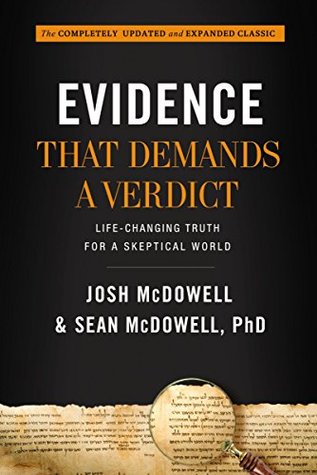More on this book
Community
Kindle Notes & Highlights
Started reading
January 7, 2025
Religion is humans trying to work their way to God through good works. Christianity is God coming to men and women through Jesus Christ.
That is why it can be said that we are in the grand secular age of apologetics.
Many Christians claim to believe in Jesus, but only a minority can articulate good reasons for why their beliefs are true.
A number of different studies track how many students leave the church during their college years, and, overall, the stats indicate that, after high school, between one-third and two-thirds of young people do leave. (Wallace, AYP)
Bottom line: if you want to train up young people to remain strong in the Christian faith, one vital component is training in apologetics.
Evangelism is done only with non-Christians, but apologetics should be done with Christians and non-Christians alike. (Beilby, TACA, 32)
Influential theologian J. Gresham Machen perhaps said it best: False ideas are the greatest obstacles to the reception of the Gospel.
For the Christian, the historical events reported in the Scriptures are essential.
Scripture and church history emphasize the importance of the role of the mind in discipleship and evangelism.
Had I been exercising “blind faith,” I would have rejected Jesus Christ and turned my back on all the evidence.
Many discount the Christian message not because they have examined the evidence and found it wanting, but because they are personally disappointed with Christians and churches.
First, the Bible speaks of human nature as gloriously made in God’s image, but profoundly fallen in sin.
If the Christian faith is true, it would still be true even if no one believed it, or if all who did were hypocrites; and if it is false, would still be false even if everyone believed it and there was no apparent hypocrisy in their behavior. (FT, 196)
If hypocrisy troubles you, then you’re on the side of Jesus.
The church is not a place for perfect people, it’s a place for broken people slowly being made whole by Jesus.
But keep something in mind: when Christians act in an arrogant, judgmental manner towards others, they are not following Scriptural teachings.
We must distinguish between Christians’ behavior and genuine Christianity. To condemn Christianity because of the misbehavior of some Christians is another way to commit the “genetic fallacy,” which is dismissing a claim because of some perceived fault in its origin.
What’s fascinating is that the people who condemn Christians for acting as if they’re right and others are wrong are, in that very action, acting as if they themselves are right and Christians are wrong.
But charitably and kindly disagreeing can be an act of genuine tolerance.
He is the only virgin-born, miracle-working, sinless, resurrected Son of God!
While all religions could possibly be wrong, it is not logically possible for all of them to be right when their claims differ so radically. Either they are all wrong or only one is right.
Christ makes no human distinctions—he died and rose again so that all people could have a personal relationship with the living God.
Among professional historians the image of warfare between faith and science has shattered. Replacing it is a widespread recognition of Christianity’s positive contributions to modern science. (Pearcey and Thaxton, SS, 36–37)
Simply put, the existence of moral values points to a universal Moral Lawgiver.
For what God is interested in is building a love relationship with us, not just getting us to believe that he exists.
If you have a broken relationship with your father, for instance, you may find it difficult to believe in a loving, personal heavenly Father.


